
How Computers Entered the Classroom, 1960–2000
In the history of education, the question of how computers were introduced into European classrooms has so far been largely neglected. This edited volume strives to address this gap. The contributi…
- Edisi
- -
- ISBN/ISSN
- 9783110780147
- Deskripsi Fisik
- ebook
- Judul Seri
- -
- No. Panggil
- -

Virtual Heritage
Virtual heritage has been explained as virtual reality applied to cultural heritage, but this definition only scratches the surface of the fascinating applications, tools and challenges of this fas…
- Edisi
- -
- ISBN/ISSN
- 9781914481017
- Deskripsi Fisik
- ebook
- Judul Seri
- -
- No. Panggil
- -

The Wheat Genome
This open access book provides the first comprehensive coverage of the wheat genome sequence since the publication of the draft and reference sequences for bread wheat and durum wheat. It presents …
- Edisi
- -
- ISBN/ISSN
- 9783031382949
- Deskripsi Fisik
- ebook
- Judul Seri
- Compendium of Plant Genomes,
- No. Panggil
- -

A History of Genomics across Species, Communities and Projects
This open access book offers a comprehensive overview of the history of genomics across three different species and four decades, from the 1980s to the recent past. It takes an inclusive approach i…
- Edisi
- -
- ISBN/ISSN
- 9783031061301
- Deskripsi Fisik
- ebook
- Judul Seri
- -
- No. Panggil
- -
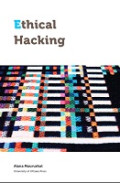
Ethical Hacking
How will governments and courts protect civil liberties in this new era of hacktivism? Ethical Hacking discusses the attendant moral and legal issues. The first part of the 21st century will likely…
- Edisi
- -
- ISBN/ISSN
- 9780776627519
- Deskripsi Fisik
- ebook
- Judul Seri
- Law, Technology and Media,
- No. Panggil
- -
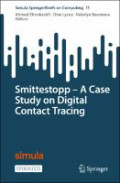
Smittestopp − A Case Study on Digital Contact Tracing
This open access book describes Smittestopp, the first Norwegian system for digital contact tracing of Covid-19 infections, which was developed in March and early April 2020. The system was deploye…
- Edisi
- -
- ISBN/ISSN
- 9783031054662
- Deskripsi Fisik
- ebook
- Judul Seri
- Simula SpringerBriefs on Computing, 11
- No. Panggil
- -
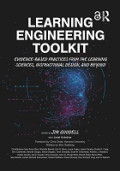
Chapter Introduction
This introduction to the book provides a conceptual and historical overview of learning engineering. Although its formal definition is still evolving, learning engineering aims to optimize specific…
- Edisi
- -
- ISBN/ISSN
- 9781032208503
- Deskripsi Fisik
- ebook
- Judul Seri
- -
- No. Panggil
- -
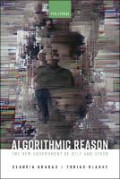
Algorithmic Reason
Are algorithms ruling the world today? Is artificial intelligence making life-and-death decisions? Are social media companies able to manipulate elections? As we are confronted with public and acad…
- Edisi
- -
- ISBN/ISSN
- 9780192859624
- Deskripsi Fisik
- ebook
- Judul Seri
- -
- No. Panggil
- -

Rhetorical Code Studies: Discovering Arguments in and around Code
Winner of the 2017 Sweetland Digital Rhetoric Collaborative Book Prize Software developers work rhetorically to make meaning through the code they write. In some ways, writing code is like any othe…
- Edisi
- -
- ISBN/ISSN
- 9780472131273
- Deskripsi Fisik
- ebook
- Judul Seri
- Sweetland Digital Rhetoric Collaborativ
- No. Panggil
- -
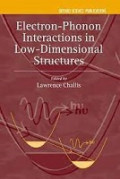
Electron-Phonon Interactions in Low-Dimensional Structures
The study of electrons and holes confined to two, one, and even zero dimensions has uncovered a rich variety of new physics and applications. This book describes the interaction between these confi…
- Edisi
- -
- ISBN/ISSN
- 9780198507321
- Deskripsi Fisik
- ebook
- Judul Seri
- -
- No. Panggil
- -
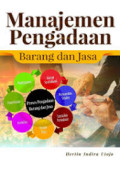
 Karya Umum
Karya Umum  Filsafat
Filsafat  Agama
Agama  Ilmu-ilmu Sosial
Ilmu-ilmu Sosial  Bahasa
Bahasa  Ilmu-ilmu Murni
Ilmu-ilmu Murni  Ilmu-ilmu Terapan
Ilmu-ilmu Terapan  Kesenian, Hiburan, dan Olahraga
Kesenian, Hiburan, dan Olahraga  Kesusastraan
Kesusastraan  Geografi dan Sejarah
Geografi dan Sejarah